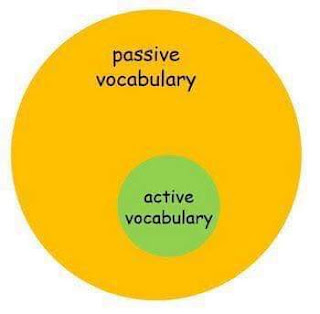ဝေါဟာရတိုးပွား အကျိုးများ၏ (ဒေါက်တာစိုးသန်း)
(တကယ်တတ်ချင်ရင် သေချာဖတ်ပါ။ Share လေးနှိပ်လိုက်ရုံနဲ့ မပြီးပါဘူး။ Vocabulary လေ့လာနည်းကို မေးသူရှိလို့ ထပ် တင်ပေးလိုက်ပါတယ်။)
It pays to increase your word power.
ဝေါဟာရတိုးပွား အကျိုးများ၏။
အင်္ဂလိပ်စာကို အခြေခံမှ စလေ့လာနေကြတဲ့ စာသင်သားတွေ တွေ့ကြရတဲ့ အခက်အခဲများထဲမှ တစ်ခုကတော့ vocabulary problem ပါ။ ဝတ္ထုတို တစ်ပုဒ်၊ သတင်းဆောင်းပါးတစ်ပုဒ် ဖတ်လိုက်ရင် ကိုယ်မသိသေးတဲ့ စကားလုံးတွေများလှတာကြောင့် လိုရင်းမရောက် အဓိပ္ပါယ်မပေါက်ဖြစ်နေတတ်ကြတယ်။ စာဖတ်ရင်းနဲ့ ကိုယ်မသိတဲ့ vocabulary words တွေများလိုက်တာ။ ဒီအခက်အခဲကို ဘယ်လိုဖြတ်ကျော်ရမလဲ။
စာဖတ်နေရင်းနဲ့ တွေ့သမျှ စကားလုံးအသစ်တွေကို Dictionary ထဲ ရှာကြည့်ရမှာလား။ ဆရာတော်တော်များများကတော့ ဒီအကျင့်ကို အားမပေးကြပါဘူး။ မသိတဲ့ စကားလုံးတိုင်းကို Dictionary ထဲလှန် အဓိပ္ပါယ်ရှာကြည့်နေရင် ဒီစာဖတ်တဲ့ အလုပ် ခရီးတွင်မှာမဟုတ်လို့ စကားလုံးတော်တော်များများကို (guess work) context ပေါ်မှာကြည့်ပြီး အဓိပ္ပါယ်ကို ခန့်မှန်းကြည့်ပြီး ဆက်ဖတ်ပါ။ အရေးကြီးတယ်လို့ ယူဆရတဲ့ စကားလုံးအချို့ကိုသာ Dictionary ဖွင့်ကြည့်ပါလို့ အကြံပေးတတ်ကြပါတယ်။
ကျွန်တော် ငယ်စဉ်က အင်္ဂလိပ်စာအုပ်တွေဖတ်ရင်တော့ ကိုယ်ပိုင်စာအုပ်ဆိုရင် မသိတဲ့ words and experssions တွေကို ခဲတံနဲ့လိုင်းသားပြီး ပထမတစ်ခေါက် ခပ်သွက်သွက်ဖတ်သွားတယ်။ ပြီးရင် Dictionary ကြည့်တယ်။ စကားလုံးအသစ်တွေရဲ့ အဓိပ္ပါယ်ကို မှတ်စုစာအုပ်ထဲ ကူးရေးတယ်။ ပြီးတော့မှ အဲဒီ စာကိုနောက်တစ်ခေါက် ထပ်ဖတ်ပါတယ်။
Vocabulary တိုးစေဖို့ စာများများဖတ်ရမယ်။ စာမျိုးစုံဖတ်မှ စာဖတ်နာမှလည်း အကြောင်းအရာ topic နဲ့ အခြေအနေ situation/context ပေါ် မူတည်ပြီး အသုံးပြုကြတဲ့ vocabulary words, usages နဲ့ collocations တွေကို တွေ့ကြုံနိုင်မှာဖြစ်ပါတယ်။ ဒါကတော့ စာ နာနာဖတ်ခြင်းမှရတဲ့ ဝေါဟာရကြွယ်ခြင်း အကျိုးအမြတ်ပါ။
နောက်တစ်ခုလုပ်သင့်တာက Vocabulary တိုးချင်ရင် active, deliberate learning လုပ်ခြင်းပါပဲ။ Dictionary ကို ရသစာအုပ်တစ်အုပ်လို ကျွန်တော် ဖတ်တဲ့အကျင့်ရှိကြောင်း ဟိုတလောက post တစ်ခုရေးခဲ့တာ မှတ်မိကြမယ် ထင်ပါတယ်။ active vocabulary learning ဆိုတာ Reading လုပ်ရင်း ဝေါဟာရလေ့လာတာမဟုတ်။ တမင်ကို ဝေါဟာရအသစ်တွေကို ရှာဖွေ ကျက်မှတ်တာ။ ဥပမာ Dictionry ကို ကြုံရာ စာမျက်နှာကိုလှန်။ ကိုယ်မသိသေးတဲ့ စကားလုံး ၅ လုံး နေ့စဉ်ရှာ။ အဲဒီ ၅ လုံးကို အဓိပ္ပါယ်နဲ့ White borad လေးပေါ်ရေးထား။ တစ်နေကုန် အိမ်မှာရှိနေသမျှအချိန် အဲဒီ White board နားရောက်တာနဲ့ အဲဒီ ဝေါဟာရ ၅ လုံးရဲ့ English to English definitions ကို ခဏခဏဖတ်၊ အလွတ်ရသည်အထိမှတ်။ ညအိပ်ခါနီး ပြန်စဉ်းစားကြည့်။ မှတ်မိရဲ့လား review လုပ်ကြည့်။ ကျွန်တော်ကျောင်းသားဘဝက နေ့စဉ် နှစ်နဲ့ချီပြီး လုပ်ခဲ့တဲ့ active vocabulary learning ပုံစံတစ်ခုပါ။ ကြာလာသည်နှင့်အမျှ စကားလုံးတွေပိုသိ၊ စာဖတ်တဲ့ speed လည်း ပိုမြန်လာပြီး Reading comprehension လည်း ပိုကောင်းလာတာပေါ့။
Vocabulary size is directly linked to reading comprehension. ဆိုတာ လူပြိန်းတောင် သိတဲ့အချက်လေးပါပဲ။
အင်္ဂလိပ်စာကို ဖတ်တော့ နားမလည်၊ နားမလည်တော့ စိတ်ဓာတ်ကျပြီး ထပ်မဖတ်တော့ စာနဲ့ ကိုယ်နဲ့ ပိုဝေးသွားကြတော့မှာပေါ့။ စာဖတ်ချင်တယ်၊ နားလည်ချင်တယ်ဆိုရင် မဖြစ်မနေလုပ်ဖို့လိုတာကတော့ ဝေါဟာရတွေများများသိအောင် active learning မှတဆင့် rich vocabulary bank ကို တည်ဆောက်ယူပါလို့ တိုက်တွန်းပါရစေ။ Vocabulary တိုးအောင် ရည်ရွယ်ပြီးရေးထားတဲ့ အင်္ဂလိပ်စာအုပ်တွေလည်း အများကြီးရှိပါတယ်။ Merriam Webster's ကထုတ်တဲ့ Vocabulary Builder စာအုပ်ဟာ တော်တော်ကောင်းပါတယ်။ "30 Days to a More Powerful Vocabulary" "Word Power Made Easy" စသည့်စာအုပ်ကောင်းတွေ ရန်ကုန်က library တွေ၊ စာအုပ်ဆိုင်တွေမှာ တွေ့ပါတယ်။ အကုန်ကောင်းကြတယ်။ စကားလုံးတွေကို အုပ်စုခွဲပြီးလေ့လာပုံ၊ prefix, suffix တို့ကို အခြေပြုလေ့လာပုံ၊ သူတို့ရဲ့ မူလဘာသာစကား Latin, Greek, German, French စသည်ဖြင့် ပိုင်းခြားလေ့လာပုံ စသည်ဖြင့် လေ့လာနည်းများ၊ ဖြတ်လမ်းများ၊ လေ့ကျင့်ခန်းများ အစုံအလင်ပါတဲ့ စာအုပ်ကောင်းတွေမို့ ဝယ်ဖတ် လိုက်နာ လေ့ကျင့်သင့်ပါတယ်။
ဆက်ပြောပြချင်တာက စာအုပ်လေးတစ်အုပ်အကြောင်း။
ပြီးခဲ့တဲ့ weekend က ဘန်ကောက် Central World ရှိ Asia Book မှာ Gyles Brandreth ရေးတဲ့ "Have You Eaten Grandma?" ဆိုတဲ့ စာအုပ်အသစ်လေး မြည်းကြည့်တာ ကြိုက်လို့ ဝယ်ခဲ့တယ်။ Gyles Brandreth ဆိုသူဟာ သာမန် စာရေးသူ scholar တစ်ယောက်မဟုတ်ပါဘူး။ သူဟာ စွယ်စုံရ အနုပညာရှင်တစ်ဦးလည်းဖြစ်တယ်။ သူ့အကြောင်းဖတ်ကြည့်မှ သူဟာ an English theatre producer, actor, politician (an MP), journalist, author, TV presenter and the Chancellor of the University of Chester တဲ့။ Oxford Dictionary of Humorous Quotations ကို ပြုစုသူ။ UK မှာ အကောင်းဆုံး Oxford University မှာ ပညာသင်ယူခဲ့သူပါ။ သူ့အကြောင်းနဲ့ သူ့စာအုပ်ကို ပြောပြနေရခြင်းအကြောင်းက အဲဒီစာအုပ်ထဲမှာ ဝေါဟာရတွေများများသိအောင် ဘယ်လိုလေ့လာသင့်ကြောင်းကို နည်းလမ်း ၆ ခု သူအကြံပြုထားတာဟာ ကိုယ်ငယ်စဉ်က လေ့လာခဲ့တဲ့ပုံစံမျိုးတွေဖြစ်လို့၊ ကိုယ့်သဘောနဲ့ အတော်တိုက်ဆိုင်လို့ စာသင်သားတို့နဲ့ မျှဝေပေးချင်တာကြောင့်ပါ။
သူအကြံပေးထားတာကို မြန်မာလို လိုရင်းကို ဘာသာပြန်ပေးလိုက်ပါတယ်။ သူ့ရဲ့ မူရင်း အင်္ဂလိပ်စာကိုလည်း ဖော်ပြပေးထားတယ်။ မူရင်းကိုပါ ဖတ်ဖြစ်အောင် ဖတ်ကြည့်ပါ။ သူအကြံပေးထားတာကို လိုက်လုပ်ကြည့်ကြပါ။ အကျိုးရှိစေလိမ့်မယ်လို့ ယုံကြည်ပါတယ်။
1. Go word hunting.
Gyles ပထမဆုံးပေးတဲ့ အကြံက Go word hunting.
ဝေါဟာရ အမဲလိုက်ထွက်ပါတဲ့။ ဆိုလိုတာက vocabulary အသစ်တွေကို တမင်လိုက်ရှာပြီး လေ့လာပါတဲ့။ စကားပြောကောင်းသူ၊ စကားလုံးတွေကို ပြောင်မြောက်ထိမိအောင် သုံးတတ်သူတွေ စကားဘယ်လိုပြောသလဲ နားထောင်ပါ။ သူတို့ သုံးလိုက်တဲ့ ဝေါဟာရတွေကို မှတ်စုရေး၊ အဘိဓာန်မှာ အဓိပ္ပါယ်ကြည့်၊ ကိုယ်တိုင်လည်း ပြောတဲ့အခါ၊ စာရေးတဲ့အခါမှာ အဲဒီစကားလုံးတွေကို သုံးဖြစ်အောင် တမင်ထည့်သုံးပါတဲ့။ အဲဒီလို တမင်ထည့်သုံးလိုက်မှ passive vocabulary (အဓိပ္ပါယ်ကိုသာ သိသော စကားလုံး)ဟာ active vocabulary (မိမိကိုယ်တိုင် ဝါကျထဲတွင် မှန်ကန်အောင် အသုံးပြုနိုင်သော စကားလုံး) အဆင့်သို့ တက်ရောက်သွားမှာဖြစ်လို့ပါ။ မူရင်းကို ဆက်ဖတ်ကြည့်ပါ။
Actively search out new, useful, and interesting words. Listen to people who have ways with words that you admire and make a note of the words they use that intrigue, surprise, or impress you. Note down the words, check them out in a dictionary, start slipping them into your own conversation and writing.
2. Talk to all kinds of people.
လူမျိုးစုံနဲ့ စကားပြောပါတဲ့။ လူကြီးတွေနဲ့ပြော၊ လူငယ်တွေနဲ့လည်းပြောပါ။ အလွှာပေါင်းစုံမှ အလုပ်အကိုင်မျိုးစုံလုပ်သူတွေနဲ့ စကားပြောပါ။ နိုင်ငံခြားသား မျိုးစုံနဲ့ စကားပြောပါ။ သူတို့ဆီမှ စိတ်ဝင်စားစရာ စကားလုံးအသစ်များကို မှတ်စုစာအုပ်ထဲမှတ် ဆက်လေ့လာပါတဲ့။ မူရင်းအပြည့်အစုံကို ဖတ်ကြည့်ပါဦး။
Talk to people from older and younger generations; talk to people from different professions and walks of life; talk to people from different English-speaking countries and diferent parts of the British Isles. Keep a notebook in which you can record the words you hear that interest you. For example, last week I overheard one of my daughters use a word I'd not heard before. She said she was 'hangry' -- angry because she was hungry.
3. Go dictionary dipping.
အဘိဓာန်ထဲမှ နှိုက်ယူပါတဲ့။
ဒါကတော့ ကျွန်တော် ဆောင်းပါးအတိုလေး ရေးပေးပြီးသား နည်းတစ်ခုပါ။
ကြိုက်ရာ အဘိဓာန်တစ်အုပ်ကိုယူ၊ ကြုံရာ စာမျက်နှာတစ်ခုကိုလှန်လိုက်၊ စကားလုံးတစ်ခုကို လက်ညှိုးနဲ့ထောက်လိုက်ပါ။ သိပြီးသား စကားလုံးဖြစ်နေရင် ကောင်းတာပေါ့။ ဒီလိုပဲ လက်နဲ့ ဆက်ထောက်ကြည့်၊ မသိတဲ့ စကားလုံးကိုမှတ်။ မှတ်စုစာအုပ်ထဲလည်း ကူး။ ဒီနေ့ ၂၄ နာရီအတွင်းမှာ အဲဒီစကားလုံးအသစ်ကို ဘယ်နည်းနဲ့မဆို တစ်နည်းမဟုတ်တစ်နည်း ကိုယ်တိုင် ပြန်အသုံးချဖြစ်အောင် သုံးပါ။ ပြောရာမှာဖြစ်စေ၊ ရေးရာမှာဖြစ်စေ တမင်ထည့် အသုံးပြုပါတဲ့။ သူရေးထားတဲ့ မူရင်း text ကို ဆက်ဖတ်ကြပါ။
Find a dictionary, open it at random, and point to a word. If you already know it, great. If you don't, read on, master the word you've found, and then find a way of using it -- somehow! anyhow! -- within the next twenty-four hours. I collect dictionaries -- I have scores of them, ancient and modern -- so this is an easy game for me to play. For example, I have just opened my copy of the Penguin Dictionary of Curious and Interesting Words and my finger landed on "moil": verb, 'to churn, to work woefully, to drudge with dread.' You know the feeling?
4. Read. Read everything and anything.
ဒီတစ်ချက်ကတော့ အထူးပြောပြနေစရာ မလိုပါဘူး။ ဝေါဟာရကြွယ်ဖို့ အရေးကြီးဆုံးနဲ့ အကောင်းဆုံးလုပ်ရမယ့် အရာကတော့ စာဖတ်ခြင်းပါပဲ။ စာကို တွေ့သမျှစာ လိုက်ဖတ်ပါ။ စာစုံအောင် ဖတ်ပါတဲ့။ အင်္ဂလိပ်စာပေမှာ အထူးသဖြင့် ဖတ်သင့်တဲ့ စာရေးဆရာနာမည်တွေကိုလည်း သူက စာရင်းတို့ထားပါတယ်။ ကဗျာတွေလည်း ဖတ်ပါ။ သီချင်းစာသားတွေကိုလည်း ဖတ်ပါ။ ဘာကိုမှ အလွတ်မပေး စာစုံအောင်ဖတ်ဖို့ အကြံပေးထားတာကို ဆက်ဖတ်ကြည့်ပါ။
Read writers who write beautifully: Jane Austin, Virginia Woolf, Elizabeth Taylor. Read writers who do wonderful things with words: Charles Dickens, P.G.Wodehouse, Jonathan Franzen. Read poetry. Read song lyrics. Read the rappers. Read the Doncaster Primary Care Health Trust's Glossary of Yorkshire Medical Terms. That's where I discovered that "Barnsley's at home" is a euphemism for 'menstruation' and "sparrow" and "sixpence" euphemisms for the male and female private parts.
5. နံပါတ်၅ မှာ အကြံပေးထားတာကတော့ ကျွန်တော်တို့ English major တက်ခဲ့စဉ်က အတန်းဖော် သူငယ်ချင်းတွေနဲ့ တကယ်လုပ်ဖြစ်ခဲ့တာလေးပါ။ ကျောင်းသားဘဝ အင်္ဂလိပ်စာ စဖတ်ချိန်မှာ Reader's Digest မဂ္ဂဇင်းတွေကို စွဲမြဲစွာဖတ်ခဲ့ပါတယ်။ Reader's Digest မဂ္ဂဇင်းမှာပါတဲ့ "It Pays to Increase Your Word Power" ဆိုတဲ့ vocabulary လေ့လာရေး ကဏ္ဍဟာလည်း ကျွန်တော်တို့ မလွတ်တမ်း ဖတ်၊ မှတ်၊ လေ့ကျင့်ခဲ့ရတဲ့ special feature of the magazine ပါပဲ။ ဒါကို စာရေးသူက Reader's Digest မဂ္ဂဇင်း အဟောင်းတွေကို ရှာပြီး အဲဒီ Vocabulary section ကိုဖတ်ကာ ဝေါဟာရကြွယ်အောင်လုပ်ဖို့ အကြံပေးထားပုံကို ဆက်ဖတ်ကြည့်ကြပါ။
Find back numbers of the Reader's Digest, founded in 1920, and for many years the world's best-selling magazine. 'It Pays to Increase Your Word Power' was one of the magazine's most popular and successful features. It was from it that I discovered the word "tergiversate", meaing 'to be debiberately ambiguous or unclear in order to mislead'. According to Reader's Digest, use the verb 'when you need a fancy way to describe someone who's beating around the bush, or being deliberately unclear'. A politician who really doesn't want to answer a reporter's question is likely to 'tergiversate', or talk and talk without ever taking a definitive stand. Your relatives may even 'tergiversate' at holiday gatherings when uncomfortable topics come up. The Latin root word, 'tergiversari', literally means 'to turn one's back', or more figuratively, 'to be evasive'.
6. Play word games.
နောက်ဆုံး လုပ်ရန်အကြံပြုထားတာကတော့ ဝေါဟာရကြွယ်ဖို့ Crossword, Scrabble စသည့် word games တွေကို ကစားပါတဲ့။ ဒီ game တွေ ကစားရင်းနဲ့ တွေ့လာရတဲ့ ကိုယ်မသိသေးသော စကားလုံးများကို အဘိဓာန်ကြည့်ပြီးရင် မှတ်စုစာအုပ်ထဲ ကူးမှတ်ပါတဲ့လေ။ မူရင်း text ကိုလည်း ဖတ်ကြည့်ပါ။
Do crosswords. Solve word puzzles. Watch 'Countdown' and play along. Play Scrabble -- and when you come across a word you don't know (or aren't sure about), check it out and make a note of it in your personal word book.
နိဂုံးချုပ်ပြောချင်တာလေးက အင်္ဂလိပ်လို စာဖတ်မြန်ဖို့၊ စာဖတ်ရင် နားလည်ဖို့၊ အပြောကောင်းဖို့၊ စာအရေးအသား တိကျကောင်းမွန်ဖို့ မရှိမဖြစ်လိုအပ်တဲ့ a rich vocabulary ဝေါဟာရကြွယ်ဝမှုကို ပိုင်ဆိုင်နိုင်ဖို့ စာဖတ်ခြင်းနှင့်အတူ အထက်မှာရေးထားတဲ့ active vocabulary learning strategies များကိုလည်း အသုံးချသင့်ပါတယ်လို့ တိုက်တွန်းပါရစေ။
With love,
Dr.Soe Than




Comments
Post a Comment